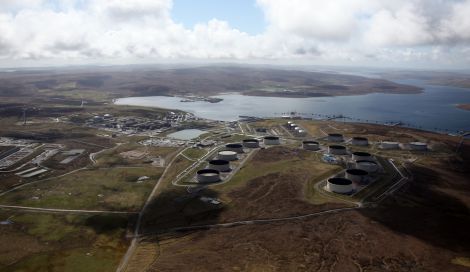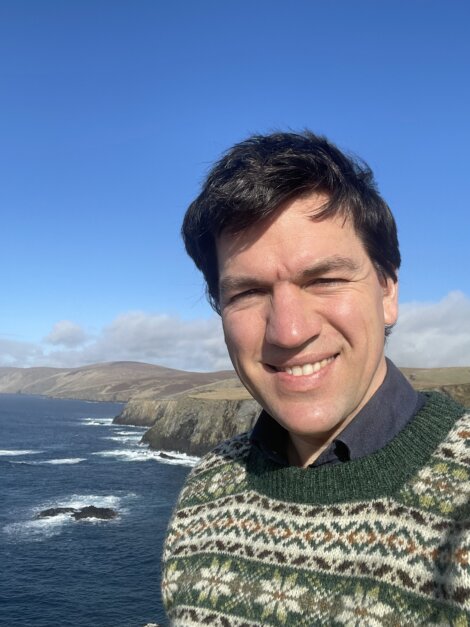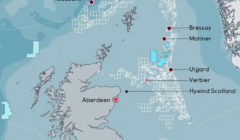Viewpoint / ‘History is repeating itself’
On the day Alex Armitage announces his intention to stand in the upcoming general election, the Green councillor reflects on the 50th anniversary of the Zetland County Council Act and what the future may hold
Fifty years ago today, hundreds of British MPs, elected to represent a population of 56 million people, filed through the voting lobbies in the Houses of Parliament in Westminster, and in doing so passed a landmark piece of legislation, the Zetland County Council Act of 1974, which gave unprecedented powers to local politicians in Shetland, a remote, island community of just 19,000 people.
The Zetland County Council Act gave Shetland the power to control aspects of the development of the oil and gas industry.
It granted community ownership of a key asset – the Port of Sullom Voe, enabling the council to charge fees for tankers entering the harbour. It enabled Shetland to set up a reserve fund which could be used for the upkeep of harbour facilities and “for any other purpose which in the opinion of the council is solely in the interests of the county or its inhabitants”.
The ZCC act also gave the council extraordinary powers to become involved with the business of the oil industry, which enabled political leaders to negotiate favourable terms for Shetland with large corporations.
I am told that this led to the then chief executive Ian Clark being likened to Gaddafi, and Shetland councillors being referred to as the “blue-eyed Arabs of the North” by a US consul in Edinburgh, although it is now understood by some that this quote was in fact manufactured in order to make Shetlanders believe they had negotiated the best possible deal (in other words, we could have held out for much more).
Even so, Shetland did well out of oil and gas, and the ZCC act still delivers significant benefits to Shetland. At present, the SIC receives millions of pounds per year in tanker dues, and though it is now eroding at an unsustainably rapid rate, our reserve fund has thus far insulated us from the financial disaster that has faced many other councils in the UK mainland. The Shetland Charitable Trust continues to provide funding for important community assets.
How the political leaders of a comparatively tiny community managed to persuade lawmakers in London to pass legislation on their behalf is a fascinating tale. Key characters in the story were senior councillors such as convener George W “Dodie Willie” Blance, ex-headteacher at the Lerwick Central school, whose bushy eyebrows and striking features gave him the appearance of a Thunderbirds puppet.
Cllr Alexander I. Tulloch, a businessmen who allegedly swam in the sea every morning and would later succeed GW Blance as convener.
Cllr Edward Thomason, a new councillor who prior to joining the ZCC had worked as a Lerwick insurance manager.
Alongside James W “Jimmy brains” Irvine, headteacher of Bell’s Brae primary school, who, though he never stood for election, was as his boyhood nickname suggested one of the key brains behind the operation.
Together, they built the political momentum that would eventually culminate in the passing of the ZCC act in 1974.
There was significant opposition to the arrival of the oil industry. Quoted in a New York Times report not long after the arrival of the first oil workers to the isles, one county councillor and Church of Scotland minister Rev. William C Robb, warned of the “money culture getting its grips on Shetland”, saying: “You used to be able to leave your doors unlocked. There was no fear. People turn their keys now”.
Despite the opposition, Blance, Thomason, Tulloch, Irvine and their allies grasped the reality of the situation that Shetland found itself in. Huge wealth was to be gained from the vast oil deposits discovered under the northern North Sea and it was inevitable that large scale industrial development would come to the isles.
Outright opposition was a waste of political capital, but attempting to control development, as well as seeking powers to gain significant financial benefit, was something worth fighting for. Councillors gave their backing to chief executive Ian Clark to negotiate with oil companies, and the Orkney and Shetland MP, Jo Grimond, to negotiate with the UK government.
Speaking in Parliament, Grimond warned MPs of a free-for-all for energy companies in Shetland, pointing out the significant impact that energy development would have on a unique island community. Referring to the newly discovered oil reserves, he argued “for the retention in the islands of a fair share of the income which will arise from these discoveries”.
Despite some opposition from MPs, Jo Grimond’s private members bill passed through the legislative process and became an Act of Parliament on this day 50 years ago.
In 2024, the pipelines to Shetland from the oil and gas reserves in the North Sea, which brought so much wealth to Shetland and the UK, are in the process of being permanently shut off, with all the oil having been extracted.
The world faces a climate emergency, a legacy of the burning of fossil fuels. Necessarily, there is now huge demand for renewable energy, and yet again, the spectre of energy development looms over our Shetland community.
For energy developers, Shetland’s wind resource is world class; there is nowhere else in Europe more productive for wind development than Shetland. Yet again, there is a risk of a free-for-all for energy companies in Shetland, given the immense value of the natural resource of our wind. The lesson that Viking Energy windfarm has taught us, as was also the case in the 1970s, is that an outright opposition of energy development is a waste of political capital, but control of development, and community ownership of assets is a prize worth fighting for.
I believe that what Jo Grimond said in parliament in 1973 holds true today: the retention in Shetland of a fair share of the income from renewable energy is a political objective we should aspire to.
I have chosen today to launch my campaign for the general election because I believe that history is repeating itself.
I may not be a politician of the calibre of GW Blance, AI Tulloch, Edward Thomason or Jo Grimond, but I do grasp the reality of the situation that Shetland finds itself in, and I do have the ideas, the vision and the energy to fight for a better deal for our community.
I will continue to work collaboratively with others to achieve this.
Do you have an opinion on the issues raised in this article? If you would like to submit a response by email to be considered for publication in our letters section, please send it to letters@shetnews.co.uk























